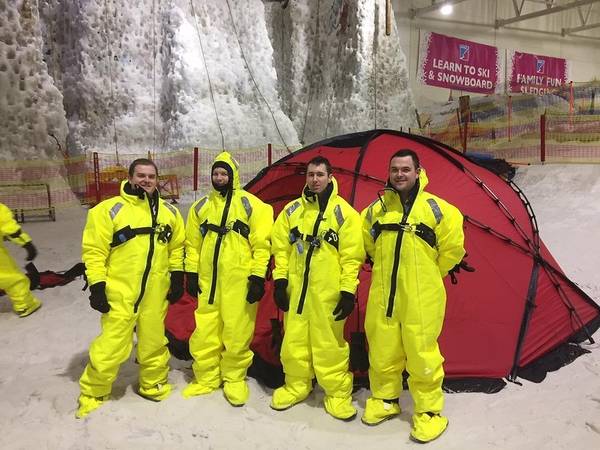
The adoption by the IMO of the International Code for Ships Operating in Polar Waters (Polar Code) makes it mandatory for ships sailing into Artic or Antarctic waters to demonstrate that extra precautions have been taken in relation to safety, protection of the environment and seafarer competence.
In anticipation of the increase in maritime traffic in the polar regions both for leisure and commercial purposes, Stream Marine’s Technical Training division has developed the world’s first Bahamas Maritime approved Polar Code/Polar Survival training course in partnership with Teekay Shipping.
Available since January 2019, the course prepares crew regarding the actions they need to take in order to survive in icy seas for up to 5 days, as per the current requirement, in the unlikely event of abandoning ship in some of the remotest and hostile areas on the planet.
SMT’s course takes place on its campus at Glasgow airport which has a swimming pool and an indoor real snow facility only 2 miles away.
The course is delivered by Master Mariners who have a wealth of knowledge of operating in icy seas and an ex Royal Marine Medic who covers first aid with specific reference to injuries which may occur in a cold environment.
The training program takes place over two and a half days and covers key areas such as: An introduction to the Polar Code; Polar Regions and Characteristics; Survival on the Ice; Cold Weather Injuries and Helicopter/Aircraft rescue.




